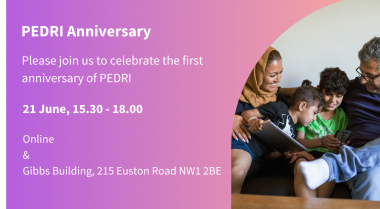Using health data science and large-scale data to improve the lives of people with rare autoimmune rheumatic diseases and other rare diseases
This project is using national electronic health records to register and improve the health and care of people with rare diseases.
The Challenge
Rare autoimmune rheumatic diseases are rare, non-genetic diseases that usually start in adulthood and can be difficult to diagnose. But the data on patients with these sorts of rare disease is patchy and disjointed – for some, we don’t even know basic information like how many people have it, how they’re being treated and where. And because we lack this fundamental patient data, it’s hard to plan and target healthcare services and to run clinical trials to find new and effective treatments.
Information about rare disease patients often already exists; the problem is that it is collected by different systems that don’t talk to each other. Not all patients are seen by specialist centres, so data is disparate, and most rare diseases lack standard codes that would allow them to be identified in health and care data.
All of this means that patients with rare diseases wait longer for the right diagnosis and treatment than those patients with more common conditions, and that the treatment they do receive isn’t always well supported by evidence.
The Solution
The RECORDER project works collaboratively with the National Congenital Anomaly and Rare Disease Registration Service (NCARDRS), and hospitals, patients and clinicians from across England to join-up existing clinical and administrative data. Using this patient-level data, the project is working to find out how many cases of particular rare autoimmune rheumatic diseases hospitals in England are treating, where they are and what care these patients are receiving. With this information, the team can build up a more detailed picture – both of the disease and of clinician and patient needs – which also helps to improve the quality and completeness of the NCARDRS dataset for other researchers and offers a great model for future collaborations.
“Combining the data identified in the RECORDER project with an understanding of what’s important to people living with a rare, auto immune conditions will help cut diagnostic delay and ensure that research into these diseases reflects the needs of people and clinicians.”
—Lynn Laidlaw, patient insight partner
Impact and Outcomes

By harnessing the large-scale data we already have and by working collaboratively with hospitals, clinicians and patients, RECORDER is developing important insights that help health services to better understand rare diseases and anticipate demand for potentially life-saving treatment, and allow researchers to identify opportunities to trial new interventions. The hope is that this will mean faster diagnosis and treatment of patients with rare diseases, more research that better meets the needs of both patients and clinicians, and more effective evidence-based care.
Partners
University of Nottingham, Nottingham University Hospitals NHS Trust and the National Congenital Anomaly and Rare Disease Registration Service (NCARDRS)



